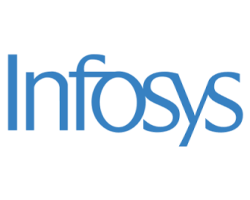How Gaming Might Spur Blockchain into Mainstream Integration
Gaming by any measure is thriving. Online gaming, in particular, is projected to have a supernova bright future, with revenues projected to reach $128 billion (₹9.342 trillion) at the end of 2020 — a little over two years from now. That online gaming will soon breach a billion in revenue is testament to the ever rising number of online gamers all around the world, including here in India and its 1.3 billion population. It is also a by-product of online gaming embracing innovation, the latest of which is blockchain technology. Said innovation is disrupting more and more industries by the day, and that includes the data management industry, with Technuter recently reporting how Seagate and IBM are using blockchain technology to reduce product counterfeiting. In this partnership, the IBM Blockchain Platform is used “to authenticate the provenance of disk drive products, bringing a new level of multi-layered security protection to the data management industry.” Now, there is another emerging partnership that just might push blockchain to the mainstream: gaming and blockchain.
The gaming-blockchain combination is ”a match made in heaven” according to Irish Tech News. Lending credence to this lofty description is the introduction of altcoins like GameCredits and Nexium, which have been rolled out specifically for gaming purposes. These cryptocurrencies are starting to take the place of traditional money and is becoming a more viable and accepted alternative to traditional payment methods (i.e., through credit cards or via PayPal). In short, can now buy game subscriptions or make in-game purchases using altcoins. This blockchain-backed set-up is advantageous to game developers since they receive higher commissions for every transaction. Eventually, however, gamers themselves will benefit from it. The greatest benefit? The opportunity to actually own every subscription or in-game item. In the old, still widely used system, every purchase is credited to a gamer’s account only, which means loss of such means loss of items. In contrast, blockhain-based purchases will let the gamer take ownership of whatever he or she buys, as each transaction is recorded and kept safe and secure in virtual ledgers.
Such was the dynamics behind the highly controversial and now discontinued Real Money Auction House (RMAH), which Blizzard included in the popular and acclaimed Diablo 3. Through RMAH, Diablo 3 players were able to buy from and sell to one another virtual gear and items for real money. Players got what they needed from fellow players, and they earned in the process. Blizzard, the brainchild behind RMAH, earned to, as a percentage of each transaction’s payment went to Blizzard’s coffers. This system was a pioneer, and the first of its kind; but it was surprisingly frowned upon. Now with blockchain, a similar, more secure system will emerge, and eventually become the norm.
Also worth keeping an eye on is online betting, which is emerging within the larger framework of online gaming. Steps to integrate blockchain to this sector have been undertaken already, but it has remained largely bound to traditionalist methods as regards the means of payment available to players. But online betting stands to benefit from blockchain. We know from history that even in the early days of online betting, platforms that were able to adapt and innovate gained niches for themselves, and that sort of innovation is just what the blockchain provides. This technology will allow for faster, safer, and more efficient transactions, and will eliminate the need for third party intermediaries, meaning transactions will be less costly – which is a good thing both ways.
Blockchain’s increasing integration to online gaming is proof that acceptance of digital currencies is rising, as it should, and that blockchain is, indeed, the future, as it should be. It allows for faster transactions, automated record-keeping, asset security, and user anonymity, among other things, and these all are advantageous to companies and their clientele. As it stands, cornering a soon-to-be-multibillion dollar industry may be blockchain’s biggest coup to date, and it could very well be the spark the technology needs to go mainstream. It’s too early to tell just yet, but the future of blockchain looks brighter than it has ever been.



